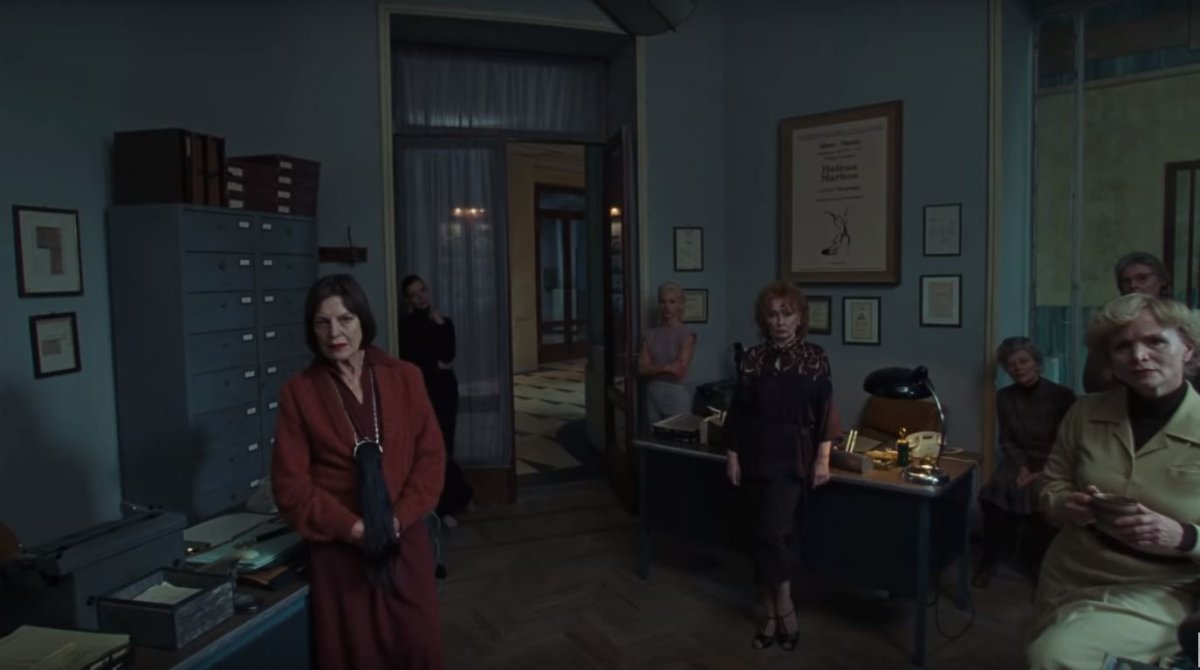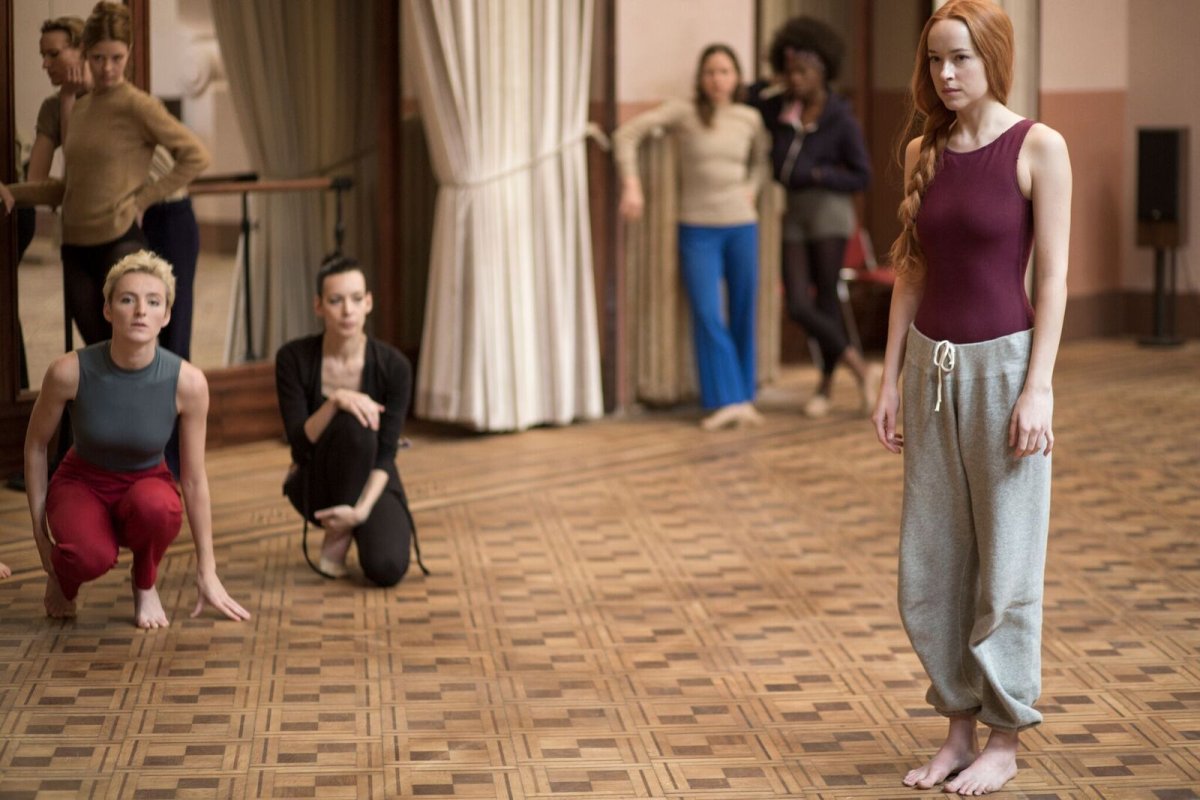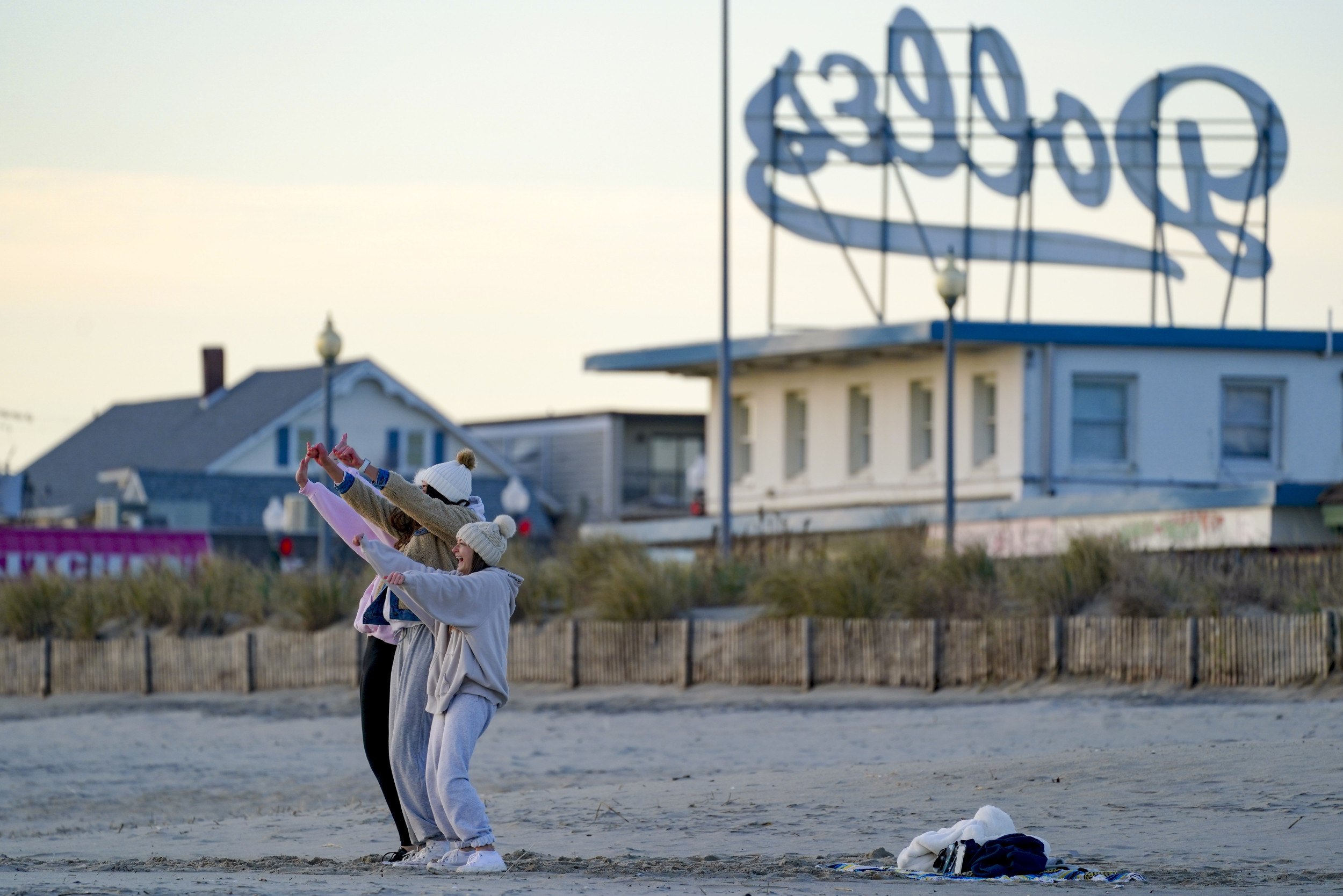Witches get out the vote too. One of the more pivotal scenes in Luca Guadagnino's (Call Me By Your Name) version of Suspiria is a simple election—a voice vote—as the coven of witches operating (more or less out in the open) a Berlin dance academy decide between artistic director Madame Blanc (Tilda Swinton) and the hidden Helena Markos. They are deeply divided between Markosites and Blancites, just as the '70s Berlin outside their door is torn apart by leftists in the streets and former Nazis in the government.
"Six acts and an epilogue set in divided Berlin," Suspiria opens, indicating its politically complicated aspirations, which set a sharp divide between Guadagnino and screenwriter David Kajganich's (The Terror) Suspiria and Dario Argento's 1977 original. In that Suspiria, the dance academy was a front for something evil just beneath the surface, its students weren't really there to dance, but to be consumed. Colors were stark and so was the threat.
This Suspiria is less concerned with the hard boundaries between the natural and supernatural, or witch and not-a-witch. The moral heart of the movie, psychologist Josef Klemperer (Tilda Swinton, disappearing into alias "Lutz Ebersdorf"), who lost his wife to a concentration camp, doesn't bother with the distinction. "People can organize to perpetrate crimes and call it magic," he tells one student of the Markos Dance Academy.

Instead, the witches are women who have developed a working alternative to the patriarchy falling apart outside our doors—financially autonomous, beyond the reach of the police (hypnotizing one inspector just long enough to laugh and prod his penis) and deeply, powerfully collectivist, both materially and spiritually. As Mennonite matriculate Susie (Dakota Johnson) learns their dances, it's easy to see what's attractive about this alternate way of life, where mind, body and the external world meet in perfect synthesis on dance floor; creation and destruction flowing unmediated from the will.
Magic in Suspiria is both violently, horrifically real and made of commonplaces—laying on of hands, pinky swears, friendships made and betrayed. Even rehearsal is a ritual, pulling energy from the ground, attracting Markos' veined, ancient touch, as her hand reaches up and strokes the underside of the floorboards to feel the power accumulating inside the dancer's shifting form. "Dance destroys images," Madame Blanc tells her. "Like prayers, spells."

Unfortunately, their future seems to depend on finding a student to both induct into their ways and betray. "They gave me things: perfect balance, perfect sleeping," promising student Patricia ( Chloë Grace Moretz ) tells Klemperer after running away from the academy. "They'll hollow me out and eat my cunt on a plate."
Their world, once balanced by the Three Mothers—Tenebrarum (darkness), Lachrymarum (tears), Suspiriorum (sighs)—has become factional and chaotic, so they respond like any government would: subterfuge, lashing out, maneuvering for resources. Decimating typical narrative conventions of good and bad, Suspiria builds a moral order that, yes, may be evil, but is also instrumental and essential to the formation of a working politic (one of the stranger tragedies of Suspiria is how the witch's working commune ruptures against the barbarism in making of their students an uninformed, disenfranchised population). Evil is disturbingly natural in Suspiria, where sometimes only further violence can make room for good to exist at all.
This makes Suspiria a powerful and dread-inducing experience even before it reveals itself to be not just an arthouse exploration of a horror aesthetic, but a down-and-dirty body horror as visceral as anything in Cronenberg's output (it's also, unlike the original, a genuine dance movie). An already infamous scene, with a dancer's sympathetic magic tearing apart the body of another, is only the beginning. Utterly different from the original, yet strangely complementary, 2018's Suspiria is as enigmatic and lingering as the bloodcurdling dreams Susie suffers as she falls under the spell of an order beyond any society conceived by men.
Uncommon Knowledge
Newsweek is committed to challenging conventional wisdom and finding connections in the search for common ground.
Newsweek is committed to challenging conventional wisdom and finding connections in the search for common ground.
About the writer
To read how Newsweek uses AI as a newsroom tool, Click here.








